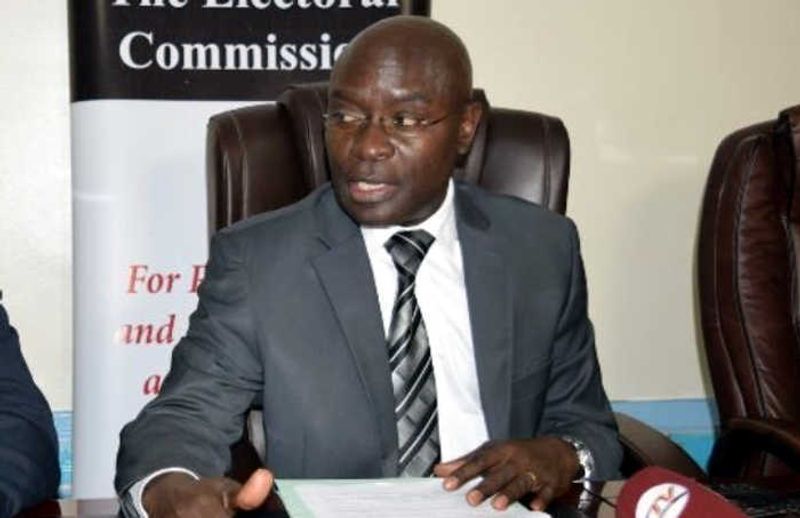

EC Chairman Justice Simon Byabakama
Following mounting unprecedented pressure from across the country over its electoral roadmap in which it discouraged public gatherings as a measure to reduce the threat of COVID-19 infections, the Electoral Commission has shown willingness to relax the directives, on condition that they are controlled.
While appearing before the Parliamentary Committee on Legal Affairs, EC Chairman Justice Simon Byabakama said that the commission is open to proposals of holding gatherings of about 50 people.
This comes after consensus formed across the political spectrum including political parties, cultural institutions and civil society organizations that the so-called scientific elections as prescribed by the electoral commission would not be accepted.
The EC said in its revised electoral roadmap issued June 16, 2020 that due to the risks of increased COVID-19 infections that are associated with public gatherings, candidates would be advised to use non-contact means to reach out to their electorates. The EC proposed using mass media, social media platforms as well as door to door or popularly known as Kakuyege method of electioneering to solicit for votes as the preferred methods, as it assesses the situation.
Opponents say the ban on gatherings disenfranchises majority of the voters but that it also seeks to favour incumbents. Critics have also expressed concern about non-contact gatherings as a hindrance to organizing delegates conferences that are scheduled to take place in a few weeks time.
But the Electoral Commission (EC) says that its does not intent to change the roadmap but that some aspects of the plan are subject to changes in the public health environment regarding the situation on COVID-19.
By the time of writing this report, EC officials were meeting Parliamentarians to address the concerns of stakeholders.
Among the opponents of the reliance on mass media is the Citizens’ Coalition for Electoral Democracy in Uganda (CCEDU), People Power pressure group, the Democratic Party and a significant majority of Members of Parliament.
Charity Ahimbisibwe argues that: “Taking out rallies from the election process infringes on the rights of voters to have a voice. Voters base on the information picked from the rallies. We have to make them happen within the acceptable standards of the law.”
Crispy Kaheru, formerly the boss of CCEDU but still involved in elections monitoring, argues that: “There are some districts in this country which do not receive local radio signals. The likes of Bukwo and border districts.”
People Power leader Robert Kyagulanyi aka Bobi Wine has also dismissed the ban on rallies saying: “The media doesn’t effectively reach 30% of the population. A bad election is more dangerous to Uganda than #COVID19. I am warning those old men not to mess us up. They are putting our country in danger.”
Buganda Katikkiro Charles Peter Mayiga while officiating at deliberations on Buganda’s Budget, this weeek also criticised the EC for failing to seek consensus from among the political players before deciding to ban rallies.
Other players say that the current legal regime does not provide for elections without rallies as this represents a form of disenfranchisement for voters.
In fact, DP leaders this week made their position very clear that they will not participate in the coming general elections if EC insists on banning rallies without amending the relevant laws.
“Some of the places don’t have the media facilities that make a digital campaign. In some places they will not even know that voting is going on. If the coronavirus pandemic is this serious, then postponing the election is a viable option because we are the ones who make the laws and we are the one who change the laws. How come they are so enthusiastic to change term limits and age limits but when it comes to facilitating voters to make informed choices now they are reluctant,” Mao wondered.
Uganda Women’s Network (UWONET) also issued a statement dismissing the scientific elections proposal.
The most fundamental principle defining credible elections is that they must reflect the free expression of the will of the people. To achieve this, elections should be transparent, inclusive and accountable, and there must be equitable opportunities for all to compete in the electoral process. As it is, EC’s proposed method of electioneering eludes the principles of inclusivity and equity. The usage of media as the primary platform for campaigns undermines the crucial aspect of establishing a level playing field for all candidates in an election and might deny voters access to critical information to make informed decisions about candidates.
But EC’s Deputy Spokesperson Paul Bukenya says that if health experts conclude that it is safe to hold public gatherings by September, when the roadmap provides for campaigns, EC will not hesitate to open up for gatherings.


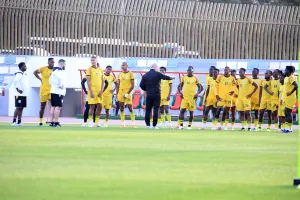
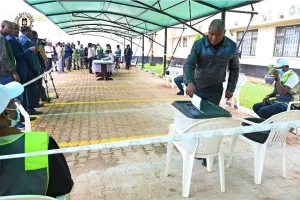

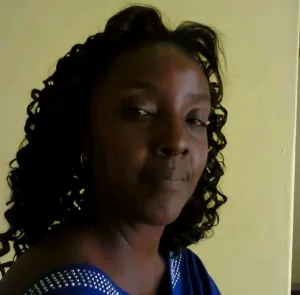




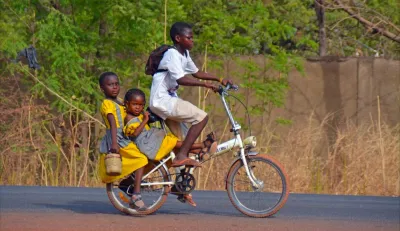

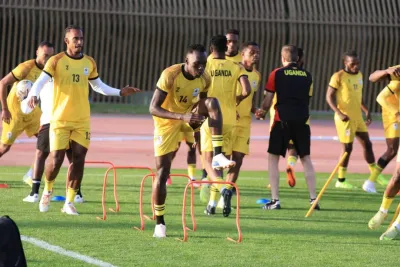
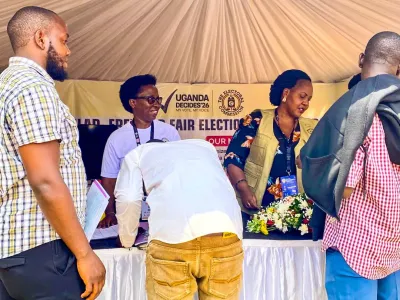
Sunrise Reporter
Leave a Comment
Your email address will not be published.